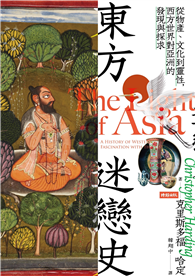Émile-Édouard-Charles-Antoine Zola (1840-1902) was a journalist, a novelist, a playwright, and a political activist. He was one of the most influential French novelists of the 19th century and the founder of the literary and theatrical school of naturalism. Zola was a major figure in the political liberalization of France. During his youth in the south of France, Zola befriended Paul Cézanne, his schoolmate and future renowned Post-Impressionist painter-best known for his incredibly varied painting style that influenced 20th century abstract art. Zola’s first book, Contes à Ninon (Stories for Ninon), was a collection of short stories dedicated to his imaginary childhood love, Ninon. He published his debut novel in 1865, La Confession de Claude, an autobiographical work that chronicled a man falling in love with a sex worker. The book drew the attention of the public as well as of the police, and it was banned in the social circles, causing Zola to lose his job. Zola went on to write Thérèse Raquin (1867), his first major novel, which delves into intrigue, adultery, and murder; and the dark love story Madeleine Férat (1868), his last novel before he started his masterful Rougon-Macquart 20-novel series. Émile Zola’s works include novels, dramas, poetry, and criticism, among which is his famous Les Rougon-Macquart (1871-1893), a cycle of twenty novels which depict various aspects of life and society, such as The Fortune of the Rougons (La Fortune des Rougon) originally published in 1871 and the first novel of the series; The Rush For The Spoil (La Curée), in 1872; The Conquest of Plassans (La Conquête de Plassans), in 1874; The Assommoir - The Prelude to Nana (L’Assommoir), in 1877, the seventh novel of the series, about the suffering of the Parisian working-class; Nana (1880), the ninth installment, which deals with prostitution; Piping Hot! (Pot-Bouille), in 1882, the tenth novel of the cycle and Zola’s most sarcastic satire, which describes daily life in a newly constructed block of flats in late nineteenth-century Paris; The Ladies Paradise (1883), the eleventh novel (original title: Au Bonheur des Dames), which focuses on Octave Mouret, who, in Piping Hot!, meets Caroline Hédouin, the owner of a small silk shop; Germinal (1885), the thirteenth novel in the series, which depicts the mining industry and is considered by some as his masterpiece; and The Soil (La Terre), in 1887-all published by Adeptio Editions.
| FindBook |
有 1 項符合
Émile Zola Collection - Nana, Sequel to "The Assommoir" (L’Assommoir)的圖書 |
 |
Émile Zola Collection - Nana, Sequel to "The Assommoir" (L’Assommoir) 作者:Zola 出版社:Createspace Independent Publishing Platform 出版日期:2017-05-15 語言:英文 規格:平裝 / 448頁 / 22.86 x 15.24 x 2.54 cm / 普通級/ 初版 |
| 圖書館借閱 |
| 國家圖書館 | 全國圖書書目資訊網 | 國立公共資訊圖書館 | 電子書服務平台 | MetaCat 跨館整合查詢 |
| 臺北市立圖書館 | 新北市立圖書館 | 基隆市公共圖書館 | 桃園市立圖書館 | 新竹縣公共圖書館 |
| 苗栗縣立圖書館 | 臺中市立圖書館 | 彰化縣公共圖書館 | 南投縣文化局 | 雲林縣公共圖書館 |
| 嘉義縣圖書館 | 臺南市立圖書館 | 高雄市立圖書館 | 屏東縣公共圖書館 | 宜蘭縣公共圖書館 |
| 花蓮縣文化局 | 臺東縣文化處 |
|
|
圖書介紹 - 資料來源:博客來 評分:
圖書名稱:Émile Zola Collection - Nana, Sequel to "The Assommoir" (L’Assommoir)
|











